MOVIE PREVIEW – Stephen King’s 1983 novel Pet Sematary has riveted generations of enthusiastic readers as a prime example of the writer’s gift for melding the everyday with the extraordinary to create supernatural thrillers that explore our darkest impulses. Poignant, petrifying and impossible to put down, the saga of the Creed family is a dark and terrifying parable about love and loss from one the most popular fiction writers in history.
The continued popularity and timeless themes of the book made the story ripe for a new adaptation, according to the film’s producers the challenge would be to make a movie faithful enough to the original text to please any nostalgic fan, but with a fresh enough take on the story to stand alone as an original thriller.
“I grew up reading Stephen King,” says producer Mark Vahradian. “Pet Sematary was one of my favorites. It left an indelible image, so for me this was personal. It’s about real human drama and family tragedy — dynamics that I think everybody understands.”
This was the second time adapting Stephen King’s work from page to screen for producer Lorenzo di Bonaventura, having produced the psychological thriller 1408, “I’m a big fan of psychological horror and Pet Sematary is an emotional story that at its core explores the deeper themes of how we deal with death and grief.”
According to di Bonaventura, the search for the right director ― or, as it turned out, directors ― to helm a modern-day reimagining of King’s novel was extensive and included a number of box-office legends. “We met a lot of people, some of them very well known,” remembers di Bonaventura. “We watched a lot of films. But Kevin Kölsch and Dennis Widmyer’s movie Starry Eyes made them stand out in a crowded field. That film is surreal as hell. It’s scary as hell. It is twisted and so distinctive. We knew we had to work with them.”
Kölsch and Widmyer’s 2014 thriller Starry Eyes premiered at SXSW and earned awards worldwide for its perverse take on Hollywood stardom. For these die-hard horror mavens with a passion for King’s work, tackling one of the master’s classic tales was a dream come true. “When we heard they were developing a new take on Pet Sematary we definitely wanted in on it,” says Widmyer. “It was a really arduous process. We had to pitch the producers quite a few times, but they agreed with our vision for it, especially because we wanted to go back to the novel for guidance.”
The filmmaking partners were attracted to the fact that the story never loses sight of the characters’ humanity in the face of its startling supernatural elements. “That’s a constant in King’s work,” Widmyer observes. “It is definitely frightening, but even if you take the horror out, it serves as a solid drama and that is what we look for. Out of all of Stephen King’s books, this is the one that deals with the most human emotion of all: grief.”
Widmyer remembers reading the book as a teen and being terrified by it. “It deals with a very human element. It is a man’s willingness to do the unthinkable to save his family, not some outside force, that starts everything. It felt like a very dangerous book to read, and it definitely stayed with me for a long time.”
The new film is the co-directors’ interpretation of King’s novel rather than a remake of the earlier movie, says Kölsch. “We see it as an entirely new adaptation. I am a big fan of the earlier film, but it exists for what it is,” he says. “We wanted to tell our version, and that includes some things that were in the book, but not the movie. There are some surprises for longtime fans, some things people won’t see coming, but we have stayed true to the essence of the book.”
Even before things begin to go bump in the night, a creeping sense of dread becomes key to the horror in Pet Sematary. “You are gradually realizing what could happen,” Widmyer observes. “I love horror movies that take domestic issues to another level and King excels at that. For example, The Shining is really about a family falling apart because of alcoholism and abuse. Horror movies that deal with real human issues are always the most interesting.”
Unearthing the Story
Pet Sematary’s return to the screen has been almost 10 years in the making. Jeff Buhler, who has also worked on new adaptations of the classic thrillers The Grudge and Jacob’s Ladder, was given the task of writing the screenplay. Buhler, whose parents gave him a King novel every Christmas, was already an avid fan.
“Once it came across my desk, I never wanted to let go,” says Buhler. “It was an essential part of my childhood, but it wasn’t until I became an adult that the real power of it struck me. It keeps getting scarier, because the horror isn’t simply derived from the supernatural events. The monster in this film is loss and what that does to people. Stephen King gives you characters that seem so real, they could live next door to you. And then he sets them on a path where they start to make impossible choices. You’re screaming, ‘Please don’t do that!’ but you know they will. That’s what makes it really fun.”
Creating a film that retained the attributes that made the earlier cinematic incarnation a cult favorite — and one of King’s top grossing films — required a deft hand. “Horror movie audiences, and film audiences in general, have become more sophisticated,” says Buhler. “They want character development and emotional engagement. The original film fit that time period so perfectly, but we wanted the filmmaking style and the characters to be totally contemporary.”
The directors brought their own ideas on how to achieve that, according to di Bonaventura. “Part of the decision-making process was hearing their reaction to the script we had,” he says. “They gave us a lot of interesting input. I was impressed with their boldness and originality.”
“Dennis and Kevin had such clarity about what people love about King’s work,” Vahradian concurs. “They knew the book inside and out, including the things that would be significant to fans and how to fit in what was missing.”
For Kölsch and Widmyer, the key was finding a balance between the real world and the supernatural. One of the most significant changes to the story may surprise longtime fans. In the original, the Creeds’ 2-year-old son Gage is killed in a traffic accident. In this film, it is their 8-year-old daughter Ellie who dies and is resurrected. Making the dramatic change to a story so beloved, the filmmakers say, was nerve-racking, but it allowed them to explore some of the relationships more deeply.
Louis and Rachel have a different connection to their older child, which helps the audience feel more deeply connected to her as well, the directors agree. It also gave them the freedom to portray the undead child with fewer special effects, as she plays complicated psychological mind games with her father and displays a physicality that would be impossible to achieve with a toddler.
“For the audience that knows the book or the movie, it should have some shock effect,” says di Bonaventura. “But it also allowed us to delve deeper into the idea of evil and discuss some existential ideas that you can’t do with a child who is pretty much preverbal.”
Family Trauma
Each of the four major characters in Pet Sematary offers the actors who play them a meaty role and a realistic emotional journey, says Widmyer, and that is reflected in the casting. “The book’s pretty rich,” he adds. “Every character has a really strong arc and a really good secret. Louis Creed is the protagonist, but all the characters get their own storylines.”
Louis Creed is a physician who has given up his Boston practice for a job at a university health center in rural Maine. He hopes the move will make the family’s life less stressful and give them more time together. Jason Clarke, who plays Louis, had read King’s book before, but says the story has taken on new meaning now that he is a father himself. “It was deeply disturbing in a way that upset me to the core,” says Clarke. “I could imagine myself in that situation. What would you do as a parent? It’s heartbreakingly beautiful in places, but I had to put it down for a while and pick it up again.”
Every character in the film undergoes a radical transformation, he notes. “The whole family goes on an archetypal hero’s journey in their own way. We talked a lot about the need to make it credible. Ultimately the book works because the emotion is real. It very definitely scares and horrifies, but it also deeply affects and disturbs.”
The Australian actor, who recently starred as Ted Kennedy in the 2018 feature Chappaquiddick, has the ability to convey his character’s emotional undercurrents, says Vahradian. “He understood the horrific grief of a father losing a child, and at the same time retained the optimism to try to bring her back.”
Pet Sematary is one of the most disturbing films he has ever worked on, says Clarke. “It goes into a deeper level of what true horror is,” he notes. “There’s a great line in the book after Louis has gone through the swamp and seen the Wendigo. He says to himself something like, ‘think about this.’ But he does it anyway.”
Casting the right actress in the role of Rachel Creed was equally crucial to the film’s success, says Vahradian. Now that he has seen Amy Seimetz’s performance, he cannot imagine anyone else in the role. “Amy turned out to be the greatest revelation in this movie,” says the producer. “I knew her primarily as a writer and a director, although she’s certainly done a lot of acting. She is incredibly photogenic, has a great sense of warmth yet is also able to handle the darkest material.”
Rachel is still traumatized by the gruesome, drawn-out death of her older sister, Zelda. “When Rachel was a little girl, her sister died of a chronic illness, and Rachel has always felt responsible,” explains Vahradian. “It takes a special actor to play somebody so damaged and at the same time so likable that you feel deeply for her.”
Life in Maine is as normal, down-to-earth and comforting as apple pie when the Creeds arrive. But Rachel has not been able to leave everything behind; she is consumed by memories. “Zelda slowly died in a room in their childhood home,” explains Widmyer. “That was frightening and tragic, and we’re seeing it all from the perspective of her younger sister.”
Seimetz, whose previous acting credits include such acclaimed series as “The Killing,” “Stranger Things” and “The Girlfriend Experience” (which she also executive-produces, writes and directs) remembers reading King’s books starting at the probably too tender age of 8. “I guess my parents were just happy I was reading something!” she laughs. “Pet Sematary was the most disturbing to me. It was not about vampires or possessed cars, but about the loss of a child and how a family deals with bigger existential concerns. It was very traumatic.”
Seimetz says her portrayal is informed by the depiction of Rachel in the novel as well as the script. “King always stays connected to the characters, as opposed to just describing the mayhem he is creating,” she says. “This is a family going through a traumatic event that is tearing them apart. My big goal was to not shy away from the initial happiness of the family. She starts reliving the death of her sister, but if she’s already a shell of a person at the start, there’s nothing lost.”
There’s another crucial element to King’s story that makes the film so compelling, says Seimetz: denial. “That’s the most striking thing, the denial of death. We’re all going to die. Every second there’s a chance that we could. That thought hangs over the entire story and makes it much bigger and much more emotional than a standard horror film.”
Jeté Laurence, who plays the pivotal role of Ellie Creed, turned 11 on the set of Pet Sematary, but to hear her colleagues speak about her, it’s easy to think they’re discussing an adult. “Jeté as Ellie is the linchpin of the movie,” says Vahradian. “She is a spectacular actor. Her eyes are very expressive. Her voice is high-pitched and sweet, which makes you want to protect her, so her character’s fate is that much more devastating.”
Ellie is anxious about moving to Maine and leaving everything familiar behind. When her beloved cat Church is killed by a truck, her father wants to protect her from the specter of death just a little bit longer. His choice is the first step on a path to disaster for the Creeds.
“It was really cool to be a part of a movie that makes you wonder if you would bring someone back from the dead,” says Laurence. “Ellie starts out as a sweet, caring little girl who loves her cat and her family, but she becomes an angry, unforgiving evil spirit. Dead Ellie is so vengeful when she’s back that she doesn’t really care about hurting people. It was really fun to do both things.”
Laurence, who has already amassed an enviable resume including guest-starring roles on “The Americans,” “Sneaky Pete” and “Jessica Jones,” enjoyed playing her most significant part yet. “My dad is a writer and we all have pretty colorful imaginations,” she says. “So even though this movie has some scary and upsetting aspects, I knew it was really just about imagination.”
Clarke was impressed by the young actress’s talent and professionalism. “She has a wonderful ability to listen,” he says. “It’s something special to be able to just sit there and see what happens and where it goes. She has that.”
Seimetz praises Laurence’s skill at playing what is essentially a double role. “It was amazing to watch her completely turn around between human Ellie and undead Ellie,” the actress recalls. “Her ability to differentiate between the two was incredible.”
A Neighbor with a Secret
Jud Crandall, the Creeds’ closest neighbor in Maine, is the person who sets the film’s series of tragic events in motion. He’s a lifelong resident of the town and knows the community’s history and folklore well — perhaps too well. An avuncular presence, he develops a close friendship with the family, especially Ellie. Actor John Lithgow, winner of multiple Tony®, Emmy® and Golden Globe® awards and a two-time Oscar® nominee, was the filmmakers’ dream Jud.
“We cannot wait for everybody to see the performance he gives,” says di Bonaventura. “Frankly, all the actors are exceptional and their memorable performances capture the emotional aspects of the story.” Lithgow hadn’t read the book or seen the earlier film before he got the script. It was Buhler’s screenplay, combined with the directors’ unique outlook on the project, that convinced him to take on the role. “It scared me and engrossed me,” says the actor. “And when I had a few questions for the filmmakers, they had already solved everything I asked about and couldn’t wait for me to read the next draft. That’s what completely sold me.”
Lithgow says he loved the fact that Jud harbors a deep, dark secret. “He’s a very mysterious character. He could be scary, or he could be benevolent. You just don’t know. In the novel, he’s very much an old codger. We’ve given Jud a backstory about a terrible loss that still haunts him. I think if Jud hadn’t suffered through that, he would’ve been a very social, good-humored, active and delightful man. He’s capable of great love and humor, but those things have just been wrung out of him by life.”
Jud has had his own experiences with the mysterious presence in the woods. Thought to be the Wendigo, an ancient spirit described in the legends of a local tribe, it still lurks in a swamp behind the Creed home. “It can bring things back to life — but at a price,” Lithgow explains. “When the Creeds lose their cat, Jud is torn about whether to share this secret with them. But he likes them so much that he makes a terrible mistake.”
Jud and Ellie’s friendship is pivotal to the movie, and Lithgow has nothing but praise for Laurence. “She’s our lucky charm,” he says. “She’s magic, completely self-possessed. She’s so easy with everybody and relaxed about the process. The character makes an extraordinary journey that any grown-up actor would be intimidated by. Jeté’s not intimidated by anything.”
Pet Sematary, he says, will take viewers on a shocking ride. “It starts simple and bucolic, as if nothing out of the ordinary is going to happen. Then slowly things seep in. You begin to see the little green shoots of anxiety among these characters,” he explains. “It draws you in. One reason Stephen King is so proud of this book is that he feels he really accomplished the thing he most aspires to: a story that speaks truth, expresses deep and true emotions, and then tortures you with them.”
Lithgow still wonders what he would have done in Louis’ place. “That’s what’s so extraordinary about the story,” he says. “There are people in your life that you love so much you feel you cannot do without them. What would you do if you had the chance to bring them back when you lose them? It’s the Faustian question.”
The Cat Came Back
As the harbinger of the Creeds’ ultimate fate, Ellie’s cat Church (short for Winston Churchill) is playful, affectionate and lovable at the outset of the story. When the burial ground reanimates him, he becomes violent and devious, and he smells like rotting flesh.
As the search for Church began, the directors set out to find a cat that resembled the long-haired tabby described in King’s novel. Animal coordinator Kirk Jarrett was tasked with finding and coordinating the animals for the film’s cat trainer, Melissa Millett.
The film’s leading feline actor is Tonic, a Maine Coon cat, appropriately for the locale. The largest domesticated cat breed, Maine Coons are an intelligent and sociable breed with a unique ruff and a luxuriant coat. “Tonic was our busiest guy,” says Millett. “Being the active, cute, super-intelligent guy, he’s the pre-grave cat. He learned to stay quite well.”
Church was primarily played by two rescue cats, Tonic and Leo, with signature strengths like hissing, staring and staying. “These cats are not professional movie cats,” explains Jarrett. “They were all adopted by Melissa, me or our team after shooting. There’s something heartwarming about abandoned cats finding new lives and homes by playing dead cats.”
Millett uses only positive reinforcement training. “The only good working cat is a happy cat,” she says. “We form a solid relationship of trust, so we can take them into environments that can be somewhat intimidating at first. To lessen the stress, we use food, play and toys, so the cats enjoy the work. One of the cats never stopped purring! We told him, this is a Stephen King movie, you can’t have that much fun!”
(to be continued)
Sorce: UIP-Duna Film

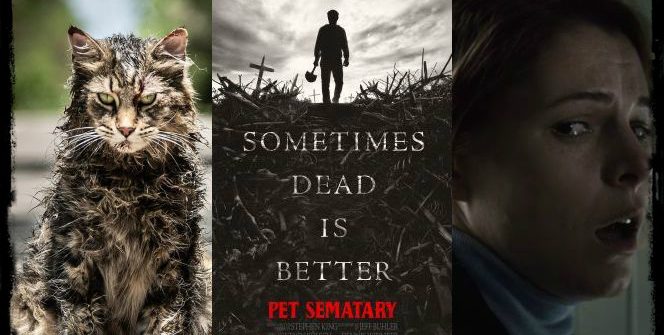





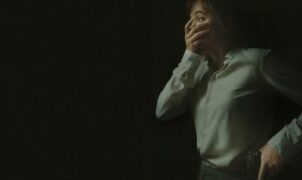
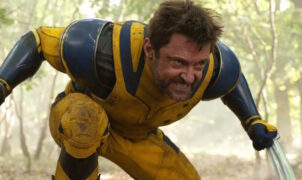
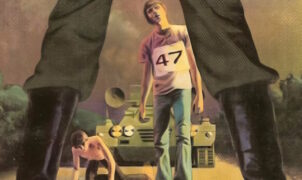



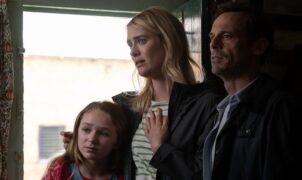


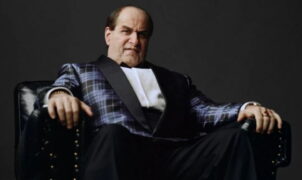




Leave a Reply